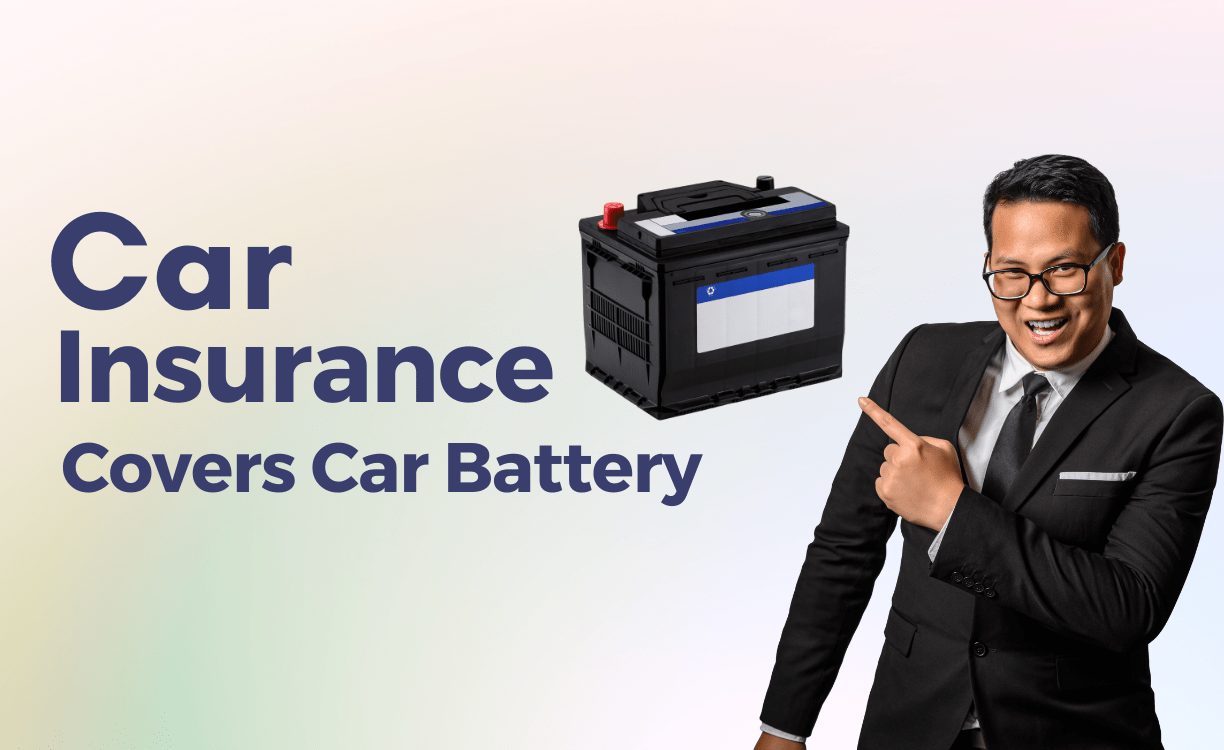Car insurance typically does not cover a dead or depleted car battery because it is considered a wear-and-tear item that naturally degrades over time.
Car insurance is a crucial aspect of vehicle ownership, providing financial protection against unforeseen events. However, understanding the specifics of what is covered—such as car batteries—can be complex. Car insurance coverage concerning car batteries, exploring scenarios where coverage applies, where it doesn’t, and alternative options for battery protection.
Can I Purchase Insurance for My Car Battery?
While standard auto insurance policies primarily protect against accidents and theft, they generally do not include coverage for routine maintenance or wear and tear, such as battery replacement.
However, some insurance providers may offer specialized add-ons or extended warranties that cover specific components, including the battery. You must inquire with your insurance company about any optional coverage options they may provide for your car’s battery.
Car Insurance Coverage for Battery Replacement: Vehicle Type Comparison
The table below outlines the typical car insurance coverage for battery replacement across various vehicle types:
When Car Insurance Covers a Car Battery
- Comprehensive Coverage
-
- If your battery is damaged due to fire, theft, vandalism, flood, or natural disasters, comprehensive coverage may pay for the replacement.
- Example: A flood damages your car’s electrical system, including the battery—this would likely be covered.
- Collision Coverage
-
- If your battery is damaged in an accident, your collision insurance may cover its replacement.
- Example: You hit another car or object, and the impact damages the battery.
- Roadside Assistance or Towing Coverage
-
- Many insurers offer roadside assistance that includes jump-starts or battery replacements.
- Example: Your car won’t start in a parking lot, and your insurer sends help to jump-start or replace the battery.
When Car Insurance Does NOT Cover a Car Battery
- Normal wear and tear (batteries naturally degrade over time).
- Owner negligence (e.g., leaving headlights on and draining the battery).
- Poor maintenance (e.g., failing to replace an old battery when necessary).
Alternative Options for Battery Coverage
Beyond standard insurance policies, there are alternative options to protect against battery-related expenses:
1. Roadside Assistance Plans
Many insurance companies and third-party providers offer roadside assistance plans that include services like jump-starts and battery replacements. These plans can provide peace of mind and are often available at a reasonable cost.
2. Manufacturer or Dealer Service Plans
Some manufacturers or dealerships offer service plans that cover maintenance items, including battery replacement, for a specified period. These plans can be purchased at the time of vehicle purchase or separately.
Factors Influencing Battery Coverage Decisions
Several factors can influence whether to seek battery coverage through insurance or alternative means:
1. Deductibles and Premiums
Filing a claim for battery replacement may not be cost-effective if the replacement cost is close to or less than the insurance deductible. Additionally, filing claims can lead to increased premiums.
2. Vehicle Age and Battery Cost
For older vehicles or those with less expensive batteries, it might be more economical to pay for battery replacement out-of-pocket rather than investing in extended warranties or additional coverage.
3. Electric Vehicles (EVs)
EV batteries are significantly more expensive than those in gasoline-powered vehicles, ranging from $5,000 to $16,000. While most EV batteries come with warranties lasting about eight to ten years or 100,000 miles, it’s crucial to understand the terms and what scenarios are covered.
Key Considerations
- Deductibles: Insurance coverage is subject to deductibles. For instance, if your battery replacement cost is $200 and your deductible is $500, insurance will not cover the expense.
- Policy Specifics: Coverage details can vary between insurance providers. It’s essential to review your policy documents or consult with your insurer to understand specific coverages and exclusions.
- Alternative Coverage Options: For scenarios not covered by standard insurance, consider:
- Manufacturer Warranties: Many new vehicles come with warranties that cover battery defects for a certain period or mileage.
- Extended Warranties: These can provide additional coverage for battery replacement beyond the manufacturer’s warranty.
- Roadside Assistance Plans: Some plans offer services like jump-starts or battery replacements.
Contact Spotlight Insurance Today for Personalized Auto Insurance Solutions
Contact us today at Spotlight Insurance or call us at 720. 923. 1500 to discuss your auto insurance coverage and explore options for specialized add-ons, extended warranties, and roadside assistance programs to ensure you have the protection you need when you need it most. Our dedicated team is here to provide you with personalized advice and solutions tailored to your unique needs. Drive with confidence, knowing you’re covered with Spotlight Insurance.




